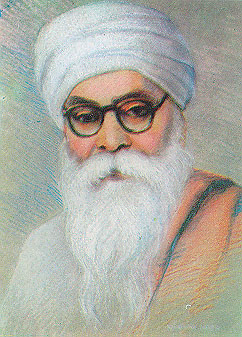Explore the legacy of Dr. Jai Singh (1856-1898), a key figure in the Singh Sabha renaissance, prominent physician, and proponent of Sikh reform.
Discover the life of Teja Singh, a revered professor and translator of Sikh sacred texts, who shaped Punjabi literature and Sikh history.
Discover Avtar Singh Vahiria, a pivotal Sikh scholar and polemicist instrumental in shaping Sikh texts and traditions across the 19th century.
Discover the remarkable life of Jodh Singh, a commandant and British ally who played a vital role in Sikhi's heritage management at the Golden Temple.
Explore Bhai Vir Singh's impact on Sikhism as a poet, scholar, and creator of Punjabi literature during the Sikh renaissance. Discover his influential legacy.
Explore Bhai Basant Singh's influential role in the founding of Sri Guru Singh Sabha, Lahore, and his pivotal involvement in Sikh reform movements.
Explore the legacy of Kahn Singh Nabha, a self-taught scholar and author of the Mahan Kosh, a pivotal Sikh literature encyclopedia.
BHAGVANT SINGH HARIJI, BHAI (1892-1968), a lover of game, horticulturist and scholar, was born on 15 February 1892 to the erudition of his celebrated father, Bhai Kahn Singh, of Nabha, the creator of the immortal Gurushabad Ratnakar Mahan Kosh. Unobtrusively, and in his characteristically gentle and self abnegating manner, Bhagvant Singh carried the family learning into the second generation. His home provided the best education then available to a young man, though he did attend formally the Khalsa College at Amritsar, then the premier educational institution of the Sikhs.
Discover the legacy of Sirdar Kapur Singh, a master of Sikh theology, philosophy & literature, whose influence shaped modern Sikh political thought.
BIKRAMA SINGH, KANVAR (1835-1887), one of the pioneers of the Singh Sabha movement, was born in 1835. He was the son of Raja Nihal Singh of Kapurthala. As he grew up, he developed interest in classical learning and music. He received several honours and distinctions from the British government. During the 1857 uprising, he commanded a Kapurthala contingent of 300 men, horse and foot, and 2 guns to defend Hoshiarpur.




